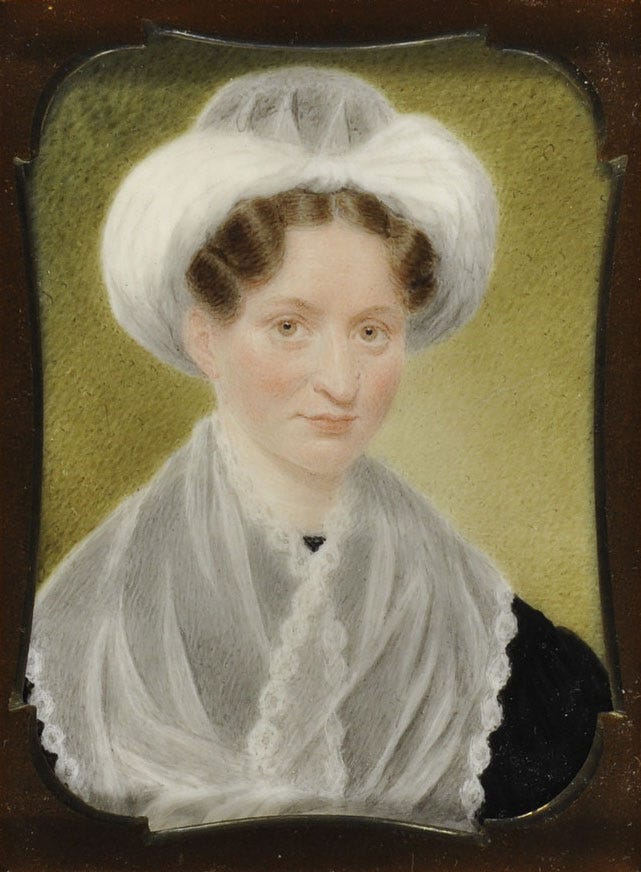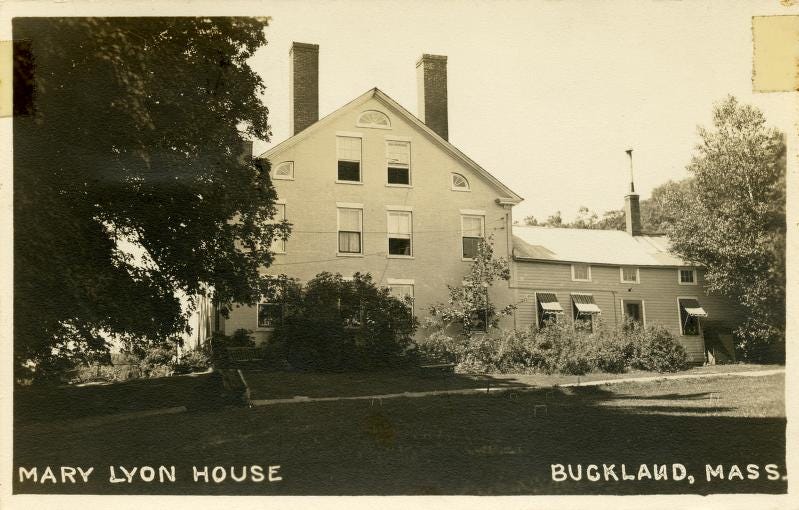Mary Lyon
Mary Lyon (1797-1849), the founder of Wheaton College in Norton, Massachusetts, and Mount Holyoke College in South Hadley, was not a freethinker. She was actually a revivalist, who is credited with helping repopularize the ideas of Jonathan Edwards, the Northampton pastor best known as the author of Sinners in the Hands of an Angry God.
The reason she appears in this set of posts about freethinkers is that she and Charles Knowlton almost certainly knew each other. Lyon attended Sanderson academy in Ashfield and taught in the upstairs “ballroom” in Major Joseph Griswold’s house in Buckland (incorrectly called the “Mary Lyon House” in the old postcard below). Knowlton was the Major’s doctor for several years before Griswold went to Boston as a state senator. When the Major returned to Buckland and died, Knowlton performed an autopsy at the Griswold house that became the basis of a public disagreement between Charles and the Major’s more recent physician.
In spite of being devout, Mary Lyon established a college in South Hadley that catered to women from regular families and in addition to seminary training required seven courses in the sciences and mathematics for graduation. Despite her concerns about checking the spread of Catholicism, Lyon taught women a rigorous academic program that would have allowed some of them to question Lyon’s own evangelical protestantism. So she represents an interesting puzzle for freethought historians. As we try to reincorporate the history of freethinkers like Knowlton into the story of America, we need to deal with the ways outsiders like Charles influenced insiders like Mary.
I have no idea whether Charles Knowlton and Mary Lyon ever interacted, so I obviously can’t claim that Knowlton influenced Lyons directly. But on the other hand, Charles would have been one of only a few people in the Ashfield-Buckland area in the 1830s who was deeply committed to the scientific method, and he had the respect and trust of Lyons’ patron, Major Griswold. And Lyon and Knowlton shared high opinions about the capabilities and appropriate roles of women that were relatively unique in 1830s western Massachusetts. Either way, it illustrates the question I’ll have to address as I move beyond biography and try to put freethinkers back into history.





